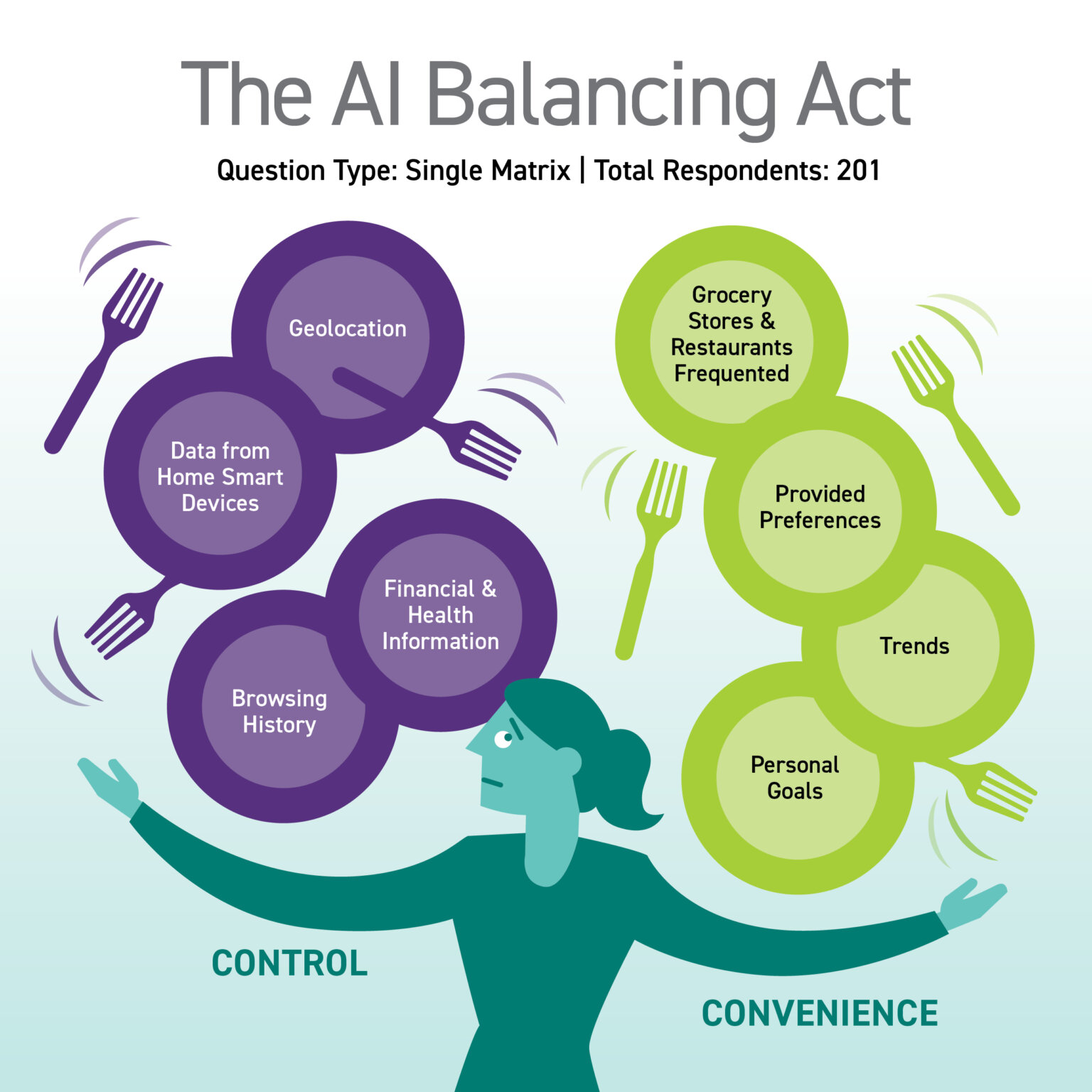In an era where technology intertwines with our daily lives, AI chatbots have emerged as a valuable tool for assisting consumers, including the day-to-day meal planning. However, consumers often find themselves weighing the advantages and disadvantages of sharing their personal data. A survey* conducted by Hormel Foods shows consumers are willing to let AI make some decisions but are more comfortable when they can control what personal data can be accessed.

Consumers today lead busy lives, seeking convenience and efficiency. AI chatbots offer the potential to simplify meal planning and purchasing by providing personalized recommendations, nutritional information and grocery lists. These AI-powered assistants have the capability to analyze individual preferences, dietary restrictions and health goals to suggest suitable recipes and products. Such features can save consumers valuable time and effort, making AI chatbots an attractive option.
One insight Hormel Foods uncovered by surveying consumers* is that consumers are most willing to embrace AI’s potential to help them meet their goals, but are hesitant to share more personal data like browsing history or geolocations.
Hormel Foods also notes that consumers want to use AI to feel empowered to make decisions, and are less willing to let AI make food substitutions based on financial concerns*.
